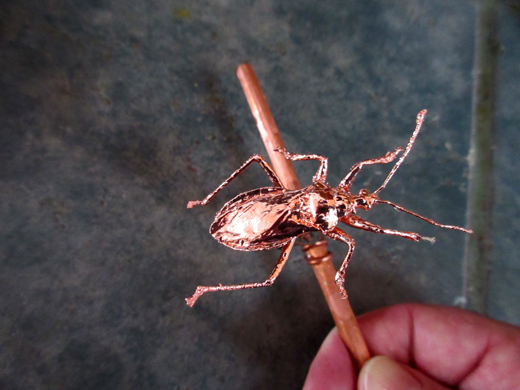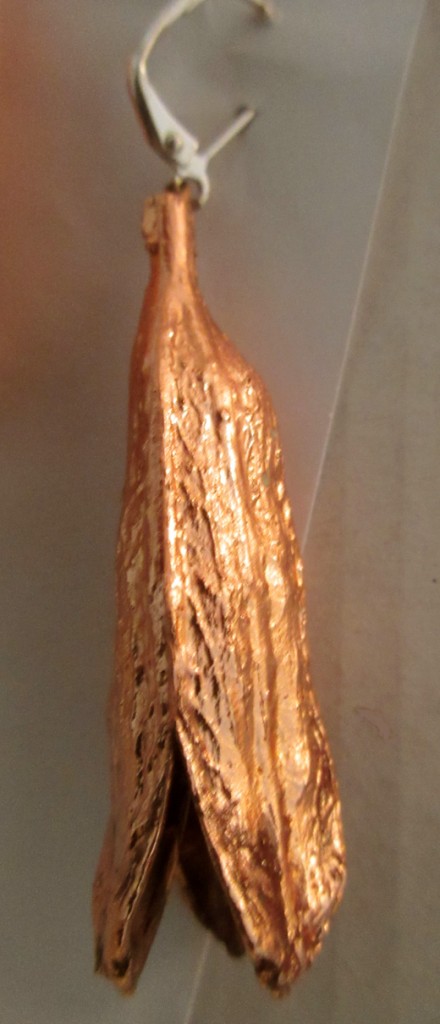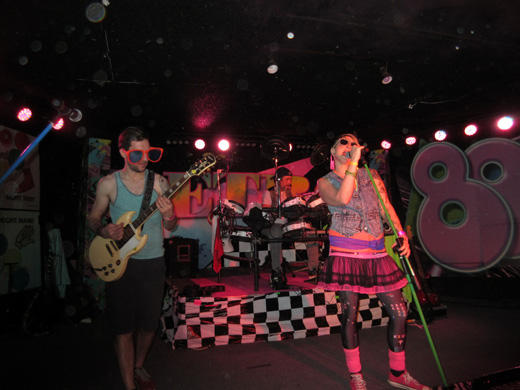Returning to our White Eyed Assassin bug Platymeris biguttatus, we are in the final stages of the formation of a copper coated insect pin:
The process is called electro-forming. Think of the electroplating technique on steroids that forms a metallic coating on a non-conductive substrate (or mandril as they say in the trade). Above, our precious little P. biguttatus is held in place with an alligator clip immersed in a copper sulphate solution.
The copper coating is thicker than that achieved in the normal electroplating process; The intention is to preserve the object hopefully forever like in the process used by those people who make bronze baby shoes. Yes, they still do that– lookie here for more info.
 Adding some colour to the piece
Adding some colour to the piece
Using two concentrations of patina wash, I was able to darken the antennae and legs and give a bit of a bronze look to the wings. The patina wash that I used is something I purchased for darkening the lead came in stained glass windows called Novacan Black Patina; The solution was diluted so I could easily control the degree of darkening. The bug gets a good washing with clean water. After it is dry, a coat of clear enamel paint is applied to the surface to keep the copper from further oxidizing. Now it’s off to the CSU bug community to show it off!
A number of insect orders represented here plus a scorpion or two. Many thanks to CSU and the Gillette Entomology Club for their generous donations. Hmm, that Lepidopteran looks like a challenge!
Desiccated specimens are hard to handle; Legs and antennae tend to break off easily. In the above case, the right hind leg had fallen off so I made an artificial leg out of hot melt glue.
Well Yes and No. The Copper Underwing Moth is a Noctuid, specifically Amphipyra pyramidea. This is a copper coated Sphingidae.
Sometime the antennae are coated, sometimes they break off. In this case, the antennae were replaced with some .005 inch diameter wire that I had in a junk drawer.
 Some kind of flower (at one time)
Some kind of flower (at one time)
Still working on the R&D side of things here. It would be great to get a ballpark figure on what the surface area of this piece was. For now, it is trial and error to set the proper current density and hope for the best. It’s gonna take time…
This was the first piece that I plated. It turned out nice enough that I thought that I should try other things. Look out!








